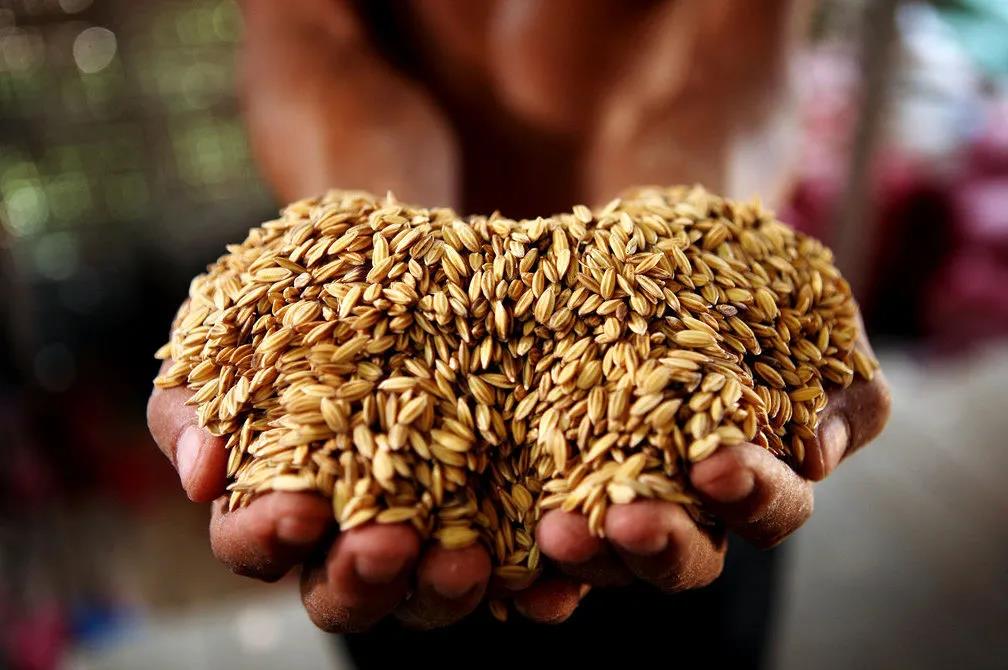世界粮食日 World Food Day

在世界粮食日,全球150个国家共同开展庆祝活动,使其成为联合国日历上最为著名的节日。在数百场会议和宣传活动中,政府、企业、非政府组织、媒体和公众齐聚一堂,共同致力于改善全球对饥饿问题和确保所有人都享有健康饮食的必要性的认识,并推动相关行动。
Collective action across 150 countries is what makes World Food Day (WFD) one of the most celebrated days of the United Nations’ (UN) calendar. Hundreds of events and outreach activities bring together governments, businesses, non-governmental organizations (NGOs), the media, and general public. They promote worldwide awareness and action for those who suffer from hunger and for the need to ensure healthy diets for all.
2020世界粮食日也是粮农组织75周年纪念日。在世界各国纷纷采取措施、以遏制2019冠状病毒病疫情广泛传播的特殊时刻,让我们一同展望未来,携手前行。
World Food Day 2020 marks the 75th anniversary of the Food and Agriculture Organization of the United Nations (FAO) in an exceptional moment as countries around the world deal with the widespread effects of the COVID-19 pandemic. It’s a time to look into the future we need to build together.
粮食英雄 Food Heroes
你们可以为可持续的粮食系统做些什么呢?
WHAT CAN WE DO TO SUPPORT SUSTAINABLE FOOD SYSTEMS?
选择多样化健康膳食
CHOOSE HEALTHY AND DIVERSE
健康膳食塑造健康生活。选择多样化饮食,就是鼓励生产多种多样的食物。这样做不仅能改善身体健康,也能保护土壤和环境健康;多样化膳食有利于生物多样性!
A healthy diet contributes to a healthy life. When we choose to eat diverse foods, we encourage a variety of foods to be produced. Remember, a diverse diet favours biodiversity!
选择当地食材
CHOOSE LOCAL
尽可能购买当地种植的新鲜食材(比如到社区农贸市场采购),为粮食英雄提供支持。这样能够帮助当地小农户,助力当地经济发展,还能支持作物多样性。
Whenever you can, support food heroes by buying locally grown fresh food, such as from a farmers’ market in your community. In doing so, you are helping smallholder farmers that produced the food, your local economy and you are encouraging crop diversity.
选择当季食材
CHOOSE SEASONAL
您知道吗?购买当季农产品就是减少碳足迹。食材从种植到端上餐桌的过程涉及很多环节。如某种食材在某地并非当季,只能依靠进口和长途运输,才能将其运达当地市场。另外当季食材成熟度更高,味道更为鲜美,更富有营养。
Did you know that you reduce your carbon footprint when you buy produce that’s in season? When food is out of season in one part of the world it has to be imported and travel a long way before it arrives to your local grocery store or market.
支持发展活动
SUPPORT DEVELOPMENT INITIATIVES
通过支持发展相关活动,例如当地社区的校餐和营养计划,就可以通过教育渠道,提高大家对饮食营养重要性的认识,并宣传健康饮食。
By supporting development initiatives, such as school meal and nutrition programmes in your local community, you can raise awareness about the importance of eating well and promote healthy eating through education.
支持食品相关企业和零售商
SUPPORT FOOD-RELATED BUSINESSES AND RETAILERS
每个人都可积极投身其中,向政府、私营部门企业和决策者施加压力,促使其采取措施,吸引人们选择健康食物同时提高健康食物的供应和获取渠道,提供体面就业和保障机制,共享创新技术,从而推动粮食体系转型。
Encourage our governments, private sector businesses and decision-makers to invest in sustainable, resilient food systems that provide decent employment, and to develop, adapt and share innovative technologies that transform the way food is produced. Nutritious and sustainable food options need to be enticing, available and accessible.
珍惜粮食、尊重粮食英雄
RESPECT FOOD AND FOOD HEROES
在粮食体系各环节都可能产生粮食损失和浪费。从饭菜端上餐桌之时,大家就应从我做起,发挥作用!学习如何妥善存放剩余饭菜,是避免浪费的方法之一。
Food loss and waste can occur throughout the food system, once it arrives at your table – you can play your part! Learning how to store uneaten food properly for another day’s meal is one way to avoid wasting perfectly good food. Respecting food means respecting food sector workers.
事实速览 Did you know?
• 2 billion people experience moderate or severe food insecurity, meaning they have difficulty in regularly accessing enough nutritious food.
• More than 113 million people across 53 countries experience acute hunger requiring urgent food, nutrition and livelihoods assistance.
• The global population is expected to reach almost 10 billion by 2050, which will significantly increase the demand for food.
• Approximately 14 percent of food produced for human consumption is lost each year before reaching the wholesale market.
• Over 3 billion people in the world lack access to internet and most of them live in rural and remote areas. Smallholder farmers need greater access to finance, training, innovation and technology to improve their livelihoods.
• Intensified food production, combined with climate change, is causing a rapid loss of biodiversity. Today only nine plant species account for 66 percent of total crop production.
• A combination of poor diets and sedentary lifestyles has led to soaring obesity rates, not only in developed countries, but also low-income countries, where hunger and obesity often coexist. No region is exempt.
• If our food systems are not transformed, undernourishment and malnutrition will greatly increase by 2050. This could increase more if there is further deterioration in income inequality, employment or basic access to services.
• The impact of malnutrition in all its forms – undernutrition, micronutrient deficiencies, as well as overweight and obesity – on the global economy is estimated at USD 3.5 trillion per year.
本文选自联合国粮食及农业组织官网
Quoted from FAO official website




